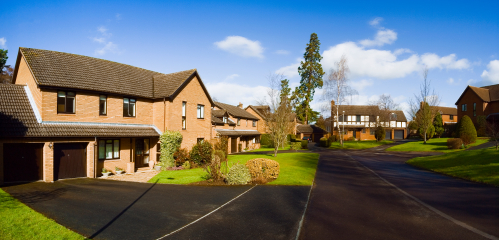Landlords letting residential property face a number of changes to their tax position in the next few years. The main three changes are:

Interest paid on loan
Currently, interest paid on a loan used to purchase a property which is let can be deducted from the rental income received in the property business. The Government has decided to change this longstanding rule for individuals who are landlords. In future, instead of deducting the interest from the letting profit before that profit is taxed, the individual will only be allowed an income tax deduction at the basic rate (20%) on the interest paid.
The change will be phased in from 2017/18, with transitional rules until 2020/21. During the transitional years, the amount of the tax deduction from rents will reduce and the proportion of loan interest that will only qualify for basic rate tax relief will increase. In the transitional years landlords will be able to claim:
• 2017/18 - 75% of the interest against rents, 25% basic rate tax relief
• 2018/19 - 50% of the interest against rents, 50% basic rate tax relief
• 2019/20 - 25% of the interest against rents, 75% basic rate tax relief.
The change could significantly affect higher and additional rate taxpayers who let out highly geared residential properties.
It is clear that individuals who currently pay tax at 40% or 45% on letting profits will pay more tax as a result of this change, although the increases planned for personal allowances and the basic rate band up to 2020 will slightly mitigate the impact. With interest rates also expected to rise over the next few years, landlords will need to consider these issues carefully when setting rent levels in future.
This change will have no direct impact on those who own and let residential properties through a company: companies will continue to deduct loan interest as a business expense and get effective relief at up to 20% (although this will fall in future as the rate of corporation tax falls).
As there are many other issues to consider, deciding on the most efficient way to hold buy-to-let properties is not straightforward – the best option will depend on individual circumstances and long term objectives. Incorporation of an existing property letting business may not be practicable in many cases, including where this would result in a large stamp duty land tax liability.
Wear and tear allowance
The Government is consulting on a proposal to remove the established system of allowing a fixed annual deduction for wear and tear on soft furnishings and moveable furniture used in a furnished letting business (10% of the rents less costs normally paid by the tenant) from April 2016. For 2016/17 onwards, landlords would only be able to claim expenses actually incurred during the tax year, excluding any element of replacement expenditure that represents an improvement.
For furnished lettings, this change may benefit landlords letting high value properties where their annual costs for replacement of soft furnishings and moveable furniture are high. Conversely, landlords at the lower end of the market will need to carefully consider the impact that this will have on their rental profit in future years. Where possible, delaying replacement of soft furnishings until after 6 April 2016 is likely to be beneficial, as the wear and tear allowance will be available for 2015/16 regardless of the amount of actual expenses, but a full deduction for replacement costs will be available in 2016/17.
Rent a room relief
The annual amount that landlords can receive from letting a room in their own home before tax becomes payable is increased from £4,250 to £7,500 (£144 per week) from April 2016 onwards. There are no proposals to change the other rules for the relief, so the new £7,500 limit will be available as an exemption or, where rents are higher, as a fixed deduction from rents.
For more information or advice, please Contact Us.
By Zainab Siddiqi